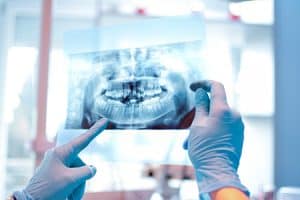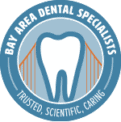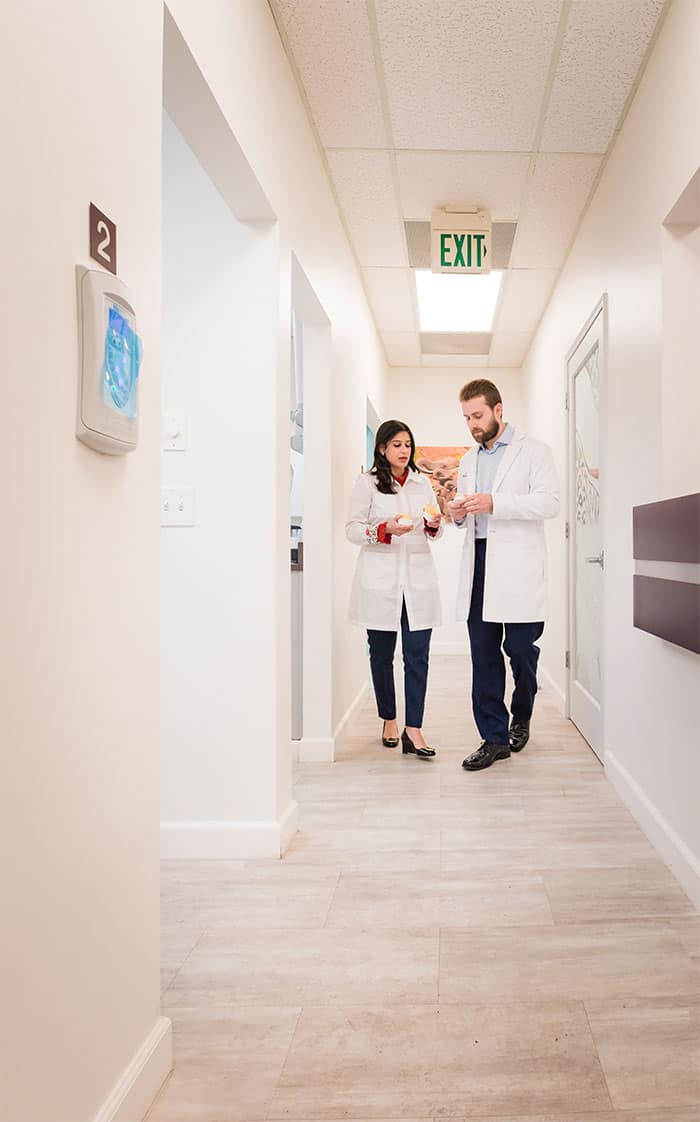
We accept dental emergencies, and you should not hesitate to call us if you are in pain or have some other dental issue which requires immediate attention. Just call our office and let one of our staff know your situation. They will do everything they can to get you seen the same day.
How We Treat Your Dental Emergency
When Dr. Bhave sees you, she will conduct a rapid and thorough examination to get an accurate assessment of what is wrong. She will get you out of pain as the first step in your treatment no matter what else may be needed. Many times, she can treat the underlying problem during the same visit.
Helpful Tips for Different Dental Emergencies
Here are some things you can and should do as temporary measures before you get to our office.
Knocked-out tooth: Keep the tooth moist at all times. Try to place the tooth back into the socket without touching the root. Bite down on some gauze or a wet tea bag to hold it in place. If that isn’t possible, carry the tooth under your tongue or inside you lower lip. You can also put the tooth in a container and cover it with some whole mile or saliva.
Knocked-out baby tooth: Keep the baby tooth moist and bring your child to our office as soon as possible. Dr. Bhave will see whether part or all of the tooth fell out, and will determine whether it can or should be reinserted.
Broken tooth: Save all the pieces you can find and rinse your mouth with warm water to flush out any other fragments. Place a cold compress on your face near that tooth to keep down any swelling.
Cracked tooth: Rinse your mouth with warm water to clean the area. Place a cold compress over your face near that tooth to inhibit swelling.
Lost filling: Use a piece of sugarless gum or over-the-counter dental cement to seal up the exposed cavity.
Toothache: Rinse your mouth with warm water. Then use dental floss to gently remove any food particles trapped between your teeth. Place a cold compress over your face in that area if any swelling has occurred. (Caution – don’t put any aspirin on the gums or on the aching tooth, as it may burn the gums).
Dental abscess: To help draw the infection to the surface and alleviate the pressure and pain, rinse your mouth with a mixture of 1/3 teaspoon of salt in eight ounces of water. Do this several times per day.
Loose Crown: If your dental crown comes off, first try to gently slip it back on. To help it stay in place, put some denture adhesive or over-the-counter dental cement inside the crown. If you can’t obtain either of these, try using some toothpaste. If none of these work to keep the crown in place, or you have no opportunity to attempt to stick it back on, bring the crown with you to our office.
Emergency Dental Care FAQs
Why Is Emergency Dental Care Necessary?
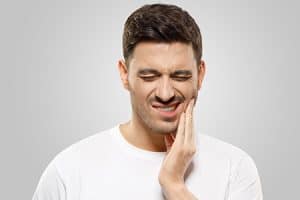
Securing an emergency dentist appointment right away can preserve your oral health and mouth function by saving a knocked-out tooth and treating an infection before it requires tooth extraction.
Why Can’t I Go to the Hospital for Emergency Dentistry?
In the United States, one in six people had a dental emergency in the previous 12 months, and most went to their local emergency department (ED) for treatment. Toothaches and other dental emergencies lead to over 800,000 ED visits every year. Unfortunately, the ED can do little to nothing to help in a dental crisis. Hospitals do not keep a dentist on staff and are only authorized to provide pain meds or antibiotics or stabilize a life-threatening dental issue. It is illegal for the emergency room physician or any other staff member to extract a tooth or perform an emergency root canal because they do not have the proper training. They will refer the patient to their dentist, leading to two visits instead of one and more suffering from mouth pain.
In most circumstances, you can save time and money by going straight to our emergency dentist. Dr. Bhave is a dental specialist (prosthodontist) trained to replace broken or missing teeth and restore a functional and beautiful smile no matter how complex the injury or damage.
Urgent dental care with an emergency dentist reduces the burden on hospitals and makes it easier for a patient to seek care from a qualified dental professional. While it may be your first instinct to head to the emergency room, contact Bay Area Dental Specialists first.
How Can I Avoid a Dental Emergency?
Many dental emergencies are avoidable with precautions, such as wearing a mouthguard when playing contact sports like hockey and football. Prevent tooth fractures by avoiding chewing on ice, pens, hard candy, and popcorn kernels, especially if you have dental restorations. Do not use your teeth as tools to open difficult packaging.
Auto accidents and other incidents are not foreseeable, but you may decrease your risk of a facial injury by wearing your seatbelt and securing loose items in the vehicle.
What Happens During an Emergency Dental Visit?
